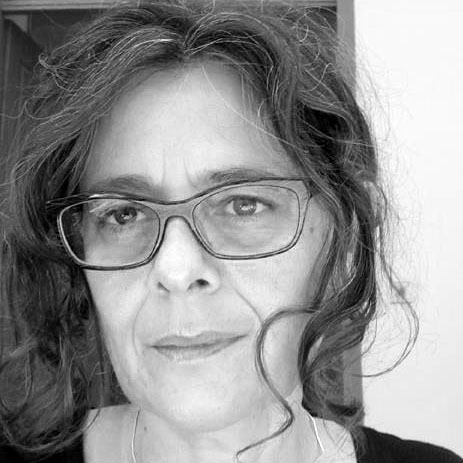
PhD candidate
entarara@uniwa.gr
Evangelia Darara was born in Larissa, Greece. She graduated from the Technological Educational Institute (TEI) of Athens with a degree (BA) in Photography. Following the presentation of her dissertation, A methodology for promoting open-air sculptures through lighting design, she earned her Master’s degree (MA) in Lighting Design-Multimedia at the Hellenic Open University.
As a professional photographer, she has mainly worked in digitization projects for collections, historical archives, and publications. Furthermore, she was assigned architectural photography shoots.
She holds an Adult Education Certificate and works as a photography teacher at Public Vocational Training Institutes (DIEK) in Athens. As a guest lecturer, she has delivered photography editing seminars at the Hellenic Centre for Photography.
Her artistic trajectory involves photography, lighting design, and performance art. In particular, she has exhibited her photographic work both individually and collectively, has carried out ephemeral lighting projects in the public space, and has presented site-specific performance art projects within the context of thematic festivals of the genre.
Phenomenological Interpretation of Urban Space in Greek Artistic Photography from 1975 to 2010.
The classification of urban space within the generic concept of man – made space is a particular one, constituting a field of fluctuating nature which appears to be in a condition of perpetual redefinition, intertwined with the history of cities. This thesis aims to explore through phenomenology the form and use of urban space, depending on the notion of synthetic critical regionalism which springs from the explicitness of the Greek Urban space in relation to the technological, institutional and artistic growth of the photographic means. The aforementioned factors may be intensively detected in the annals of research.
Urban space reflects the changing circumstances, both of its public and symbolic character, sketching it as either social or intimate, in the way the majority of approaches have shown. Phenomenological interpretation, through reversal of norms, examines urban space from a photographic perspective, without being preoccupied with the concepts of familiarity, sociality or others, in regards to urban experience. Contrarily, it elaborates in a systematic and analytical manner to unveil the existence or absence of norms, as well as diverse conditions derived from research. By bringing forth the concept of reversal, among others, this study is centered on the photographer’s aspiration to study the photographic liaison between memory and visual perception to a great extent. Consequently, fundamental questions are raised, such as the affiliation between urban and photographic space, or the possibility of the reinvention of sociality through photography.
Drawing on Flusser’s idea that technical images are bound to be decoded, not in terms of their depiction, but primarily in terms of their visual angle, the present thesis aims to examine the visual angle of images, originated from their very intimacy, hence their construction program in Flusser’s own words. Space is therefore one of the structural components of the nature of photography, since the latter embodies both space and time in its interaction with light. According to research, the timing of space may be phenomenologically defined. The same notion is also employed by archaeology for the characterization of space via time, thus the chronological production of space as an indispensable element of cultural background through the Greek artistic photographic production. The phenomenological interpretation that this thesis suggests follows the methodology of systematized archives, as well as of alternative approaches.

